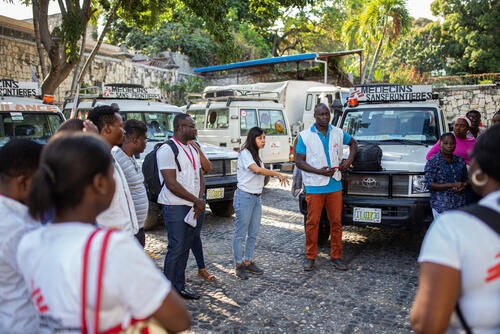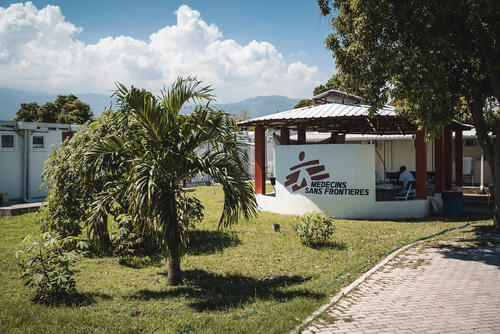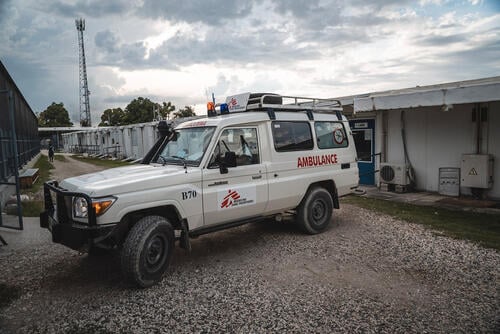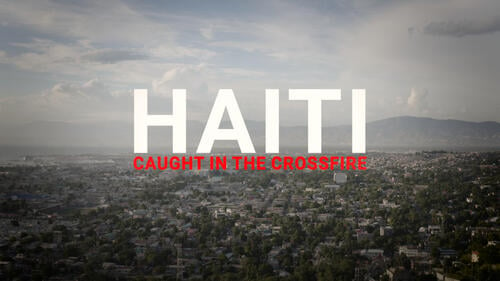People in Haiti’s capital of Port-au-Prince are caught in a spiral of ongoing violence and insecurity, living under the threat of stray bullets and kidnappings as well as economic precarity. In response, Médecins sans Frontières (MSF) continues to run mobile clinics to treat the hundreds of people trapped in their neighbourhoods.
A series of major political, social and economic events have resulted in a complex, multilayered humanitarian crisis. Access to essential services, including healthcare and mental healthcare, water and sanitation, is severely compromised across Port-au-Prince, especially in neighbourhoods most affected by violence.
Conflict between rival armed groups makes it difficult for people to move freely across the city, many of whom live in extremely precarious conditions.
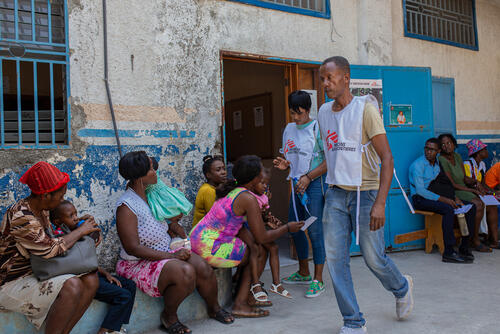
Bringing healthcare closer to patients
At least four times a week, MSF cars transport a team of doctors, nurses, psychologists, health promoters, midwives, and water specialists, as well as medical material to treat patients in areas affected by urban violence in the centre of Port-au-Prince.
“Mobile clinics are necessary in a context like Port-au-Prince,” says Michele Trainiti, MSF Head of Mission in Haiti. “Health facilities in neighbourhoods affected by violence are closed. Partly functioning health structures are difficult to reach and unaffordable for many.”
People are too afraid to travel due to violence and insecurity, including the high risks of stray bullets. Transportation options are also limited, while public healthcare facilities often face regular shortages of staff, medicines and supplies. Even when people are able to overcome all the barriers to reach a health centre, they may not be able to receive the care they need.
“Although not perfect, mobile clinics are flexible and adaptable. They allow us to bring healthcare closer to patients in parts of the city affected by violence. We can therefore overcome some of the barriers that people face in accessing healthcare,” says Trainiti.
I have seen many patients suffering from anxiety, depression, with sleep disorders or hypervigilance… with some of them consuming psychoactive substances to escape from their reality.Camille Dormetus, MSF psychologist in Haiti
In the first four months of 2023, our mobile teams treated a total of 7,781 patients and distributed more than 300,000 litres of drinking water in the areas of Delmas, Bel-Air, and Bas Bel-Air, where people have been particularly affected by violence. Another 300,000 litres of drinking water and 607 hygiene kits were distributed to people displaced by violence in the neighbourhoods of Fort National and Poste Marchand in February.
The impact of violence
The violence people experience and witness has a significant impact on their mental health. “The sound of bullets, the fear of being attacked by armed groups, the death of relatives… are all part of the traumatic situation experienced by our patients,” says Camille Dormetus, MSF psychologist in Haiti.
“I have seen many patients suffering from anxiety, depression, with sleep disorders or hypervigilance… with some of them consuming psychoactive substances to escape from their reality,” says Dormetus.
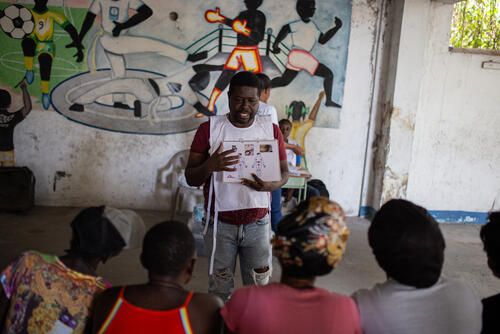
“I usually see around 50 to 70 patients on a normal day, mostly young women for sexually transmitted infections, old women for chronic pain and hypertension, and young children with respiratory infections,” says Dr Engleed Emeran, who works with the mobile clinic team.
Our mobile medical team also treats numerous cases of scabies, the most common morbidity seen in all clinics. Scabies is a contagious skin condition caused by tiny mites that burrow into the skin and is a symptom of unsanitary living conditions. It is especially common in parts of the city where access to water is limited, and sanitation facilities are inadequate.
“Through our mobile clinics, we provide basic healthcare along with health education, and refer patients with more complicated cases to other health structures. We also provide drinking water and repair sanitation facilities. We are always looking at what additional assistance we can provide, but the needs are just too massive,” says Trainiti.
Adapting to changing needs
Our mobile clinics were suspended from September to December 2022, partly due to the Peyi Lòk (mass protests) and partly due to the cholera outbreak that gripped the country. At the onset of the outbreak our mobile clinic teams were redeployed to respond to cholera, setting up new treatment facilities and other community-based outbreak response measures.
Between October 2022 and April 2023, MSF treated more than 16,829 patients in collaboration with the Haitian authorities. Although our mobile clinics are running again, levels of violence are extremely high, making continued flexibility a priority.



